
The AIgorythm project

Playwright and actor
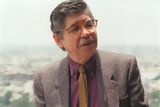
Novelist

Writer and poet

Volleyball player

Italian-Peruvian naturalist and geographer

Singer and percussionist

Last Inca emperor

Politician, former prime Minister

Journalist and TV host
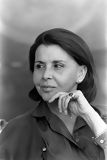
Poet

Inca warrior

Actor and comedian

Biophysicist

Poet

Doctor and researcher

Businessman, Interbank group

Journalist and writer
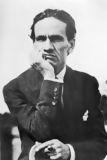
Poet and writer
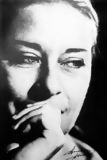
Singer and songwriter
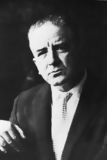
Writer

Film director, Berlin Golden Bear winner

Football player
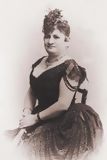
Writer and journalist
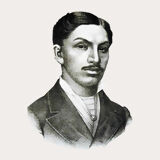
Doctor and scientist

Photograph

Chess player

Industrialist
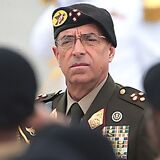
Former general

Specialist in public health

Actress and singer

Afro-Peruvian music singer

Mathematician and engineer

Indigenous chronicler

Neurologist and anthropologist

Painter

Football player
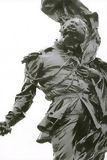
National hero, military leader

Intellectual and reformer

Chef and entrepreneur

Fashion designer

Singer-songwriter

TV presenter

Marathon runner

Indigenous Peruvian chronicler

Theologian

Former national team captain

Economist and former health minister

Inca princess

Writer and television host

Folk musician

Poet and guerrilla
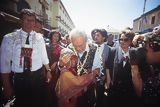
Former UN secretary-general

Chef, known for fusion cuisine

Football player

Peruvian aviation pioneer

Poet and artist
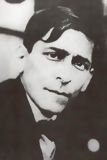
Marxist philosopher and writer

Industrialist and businessman
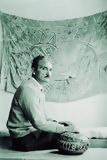
Novelist and ethnologist

Painter and muralist

Opera tenor

Fashion designer

Cardinal of Lima

Peruvian tennis player

Football coach

Leader of the indigenous rebellion
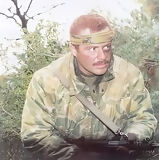
Military hero

Latin singer
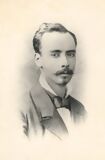
War of the Pacific hero

The youngest mother in history

Politician
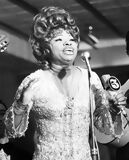
Creole music singer

Tennis player
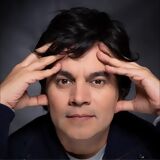
Musician

Writer and politician

Politician and founder of the Christian Democratic Party

Founder of Sodalitium Christianae Vitae

Archaeologist and anthropologist
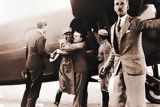
Military leader and politician

Television host
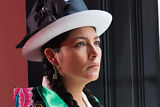
Actress and singer

Contemporary sculptor

Women’s rights activist

Beauty queen

Astrophysicist

Heroine of independence

Mathematician and archaeologist

Historian and anthropologist
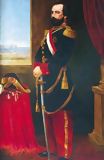
Military figure and historical figure

Fashion photographer
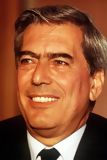
Writer, Nobel Prize in Literature, Politician

Revolutionary leader
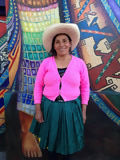
Environmental activist

Leader of the indigenous rebellion

Musician from Gaia band
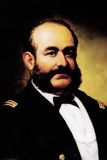
War hero
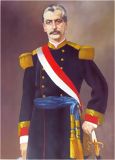
Military leader and politician

Chef, known for Nikkei cuisine

Volleyball coach and former player

Environmental activist

Television personality

Writer
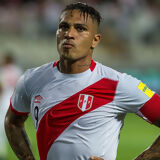
Football player

Epidemiologist and former health Minister

Inventor and aerospace pioneer

Soldier and inventor

Rock singer

Chef and co-owner of Central restaurant

Painter

Football player

TV presenter and actress
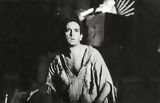
Actor
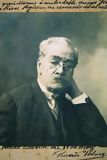
Writer and historian

Journalist and lawyer

Archaeologist, founder of Caral site
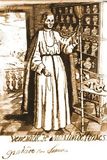
Monk and Saint
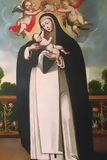
Saint, patron of Latin America

Physicist and engineer

World champion surfer

Actress

Oncologist

Singer, Latin Grammy winner

Former mayor of Lima

Singer

Actress

Former football player

Painter
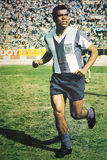
Former football player

Painter

Inca leader

Archbishop, saint
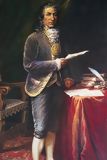
Leader of the indigenous rebellion

Revolutionary indigenous leader

Diplomat and intellectual

Sculptor and painter
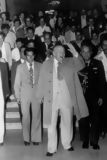
Political leader, founder of APRA

Lawyer and Former prime minister

Chef of Central restaurant
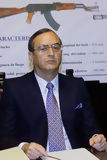
Former head of secret services

Popular singer

Fashion designer

Exotic music singer
Teodoro "Lolo" Fernández, born on May 20, 1913, in Cañete and passing away on September 17, 1996, is one of the greatest footballers Peru has ever produced. Affectionately known as "Lolo," Fernández is a legend of Universitario de Deportes and left an indelible mark on the history of Peruvian football. Known for his powerful shot, loyalty, and dedication to both his club and country, he remains a model of fidelity and talent in the sport today. His legacy transcends the pitch, making him a symbol of national pride and a hero for football fans across Peru.
Teodoro Fernández Meyzán was born into a humble family in Cañete, a small town south of Lima. From a young age, he showed great interest and talent for football, playing on the streets and makeshift fields in his hometown. This natural talent quickly caught attention, and he soon joined the ranks of Universitario de Deportes, one of Peru's largest football clubs, in 1931.
At just 18 years old, Fernández made his debut with Universitario’s first team. From the outset, he impressed with his ability to score goals and his physical strength. His powerful shot, often unstoppable for opposing goalkeepers, quickly became his trademark. In a short time, he became a key figure in Universitario’s attack and a fundamental player in the Peruvian league.
One of the most remarkable aspects of Teodoro Fernández's career was his unwavering loyalty to Universitario de Deportes. Unlike many footballers of his era and today, who frequently change clubs, Fernández spent his entire career at Universitario. From 1931 to 1953, he wore the club's jersey, turning down lucrative offers from other teams in Peru and abroad.
Fernández won numerous titles with Universitario, including six Peruvian league championships. His leadership and goal-scoring ability made him a natural captain and a respected leader among his teammates. His name is closely tied to the club’s history, and Universitario honored him by naming their stadium "Estadio Lolo Fernández," a symbolic gesture reflecting the place he holds in Peruvian football history.
Teodoro Fernández also shone on the international stage with the Peruvian national team. He made his debut for Peru in 1935 during the South American Championship, known today as the Copa América. His first major international tournament was a success, as he led Peru to victory, winning the South American championship title. Fernández scored six goals in that tournament, becoming the top scorer, and was one of the competition’s standout revelations.
In 1936, he was part of the Peruvian team that participated in the Olympic Games in Berlin. Although Peru was controversially eliminated, Fernández shone by scoring five goals in the tournament, once again proving his effectiveness on the international stage.
Fernández also played a key role in the 1939 Copa América, where he led Peru to another continental title. He netted seven goals during the competition, cementing his status as the top scorer and key player of the tournament. This victory solidified Fernández’s place among the greatest legends of South American football.
Teodoro Fernández was known for his exceptional shooting power, but he was also an incredibly complete player. In addition to his goal-scoring prowess, he could distribute the ball from midfield and defend with determination when his team needed it. His ability to play in various positions on the field made him a versatile player, respected not only for his talent but also for his game intelligence and tactical awareness.
As a forward, he had the ability to score from almost any position on the field. His powerful shots, both with his right and left foot, were devastating for opposing goalkeepers. This quality made him one of the top scorers of his era, both at the national and international levels.
After more than two decades of playing at the highest level, Teodoro Fernández retired in 1953, following a remarkable career. His loyalty to Universitario and the Peruvian national team earned him the respect of his teammates, opponents, and football fans alike. Unlike other football legends, Fernández chose to lead a quiet life after retirement, staying away from the spotlight.
Nevertheless, his impact on Peruvian and South American football never faded. He remained an emblematic figure for new generations of Peruvian footballers, a model of loyalty, hard work, and humility. Every year, Universitario fans pay tribute to their hero by celebrating his achievements and honoring his memory.
The name Teodoro "Lolo" Fernández remains etched in the history of Peruvian and international football. With over 156 goals in 180 appearances for Universitario de Deportes and 24 goals in 32 matches for the Peruvian national team, he is undoubtedly one of the greatest scorers Peru has ever seen.
His legacy goes far beyond statistics. Fernández embodied values that are rare in modern football: loyalty to a single club, love for the game, and respect for his teammates and rivals. The stadium bearing his name, Estadio Lolo Fernández, stands as a living testament to the impact he had on his club and on Peruvian sport in general.
Teodoro "Lolo" Fernández is much more than a Peruvian football legend. He is a symbol of loyalty, perseverance, and dedication, both on and off the field. His love for Universitario de Deportes and for the Peruvian national team has forever marked the history of football in his country. Today, he is still celebrated as one of the greatest footballers of all time, and his name continues to inspire younger generations who dream of following in his footsteps.
As generations of fans and players pass, the legacy of "Lolo" Fernández endures, reminding everyone that football is not just about goals or victories, but also about passion, loyalty, and honor. His story is a life lesson, a reminder that success is not only measured in trophies but in the lasting impact one leaves on others.